Be careful that the empty desk will affect your child's academic performance and personality
Be careful that the empty desk will affect your child's academic performance and personality
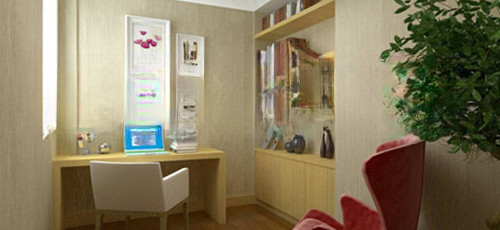
When Haoran is doing Feng Shui for clients, he often finds that in many families, the placement of children's desks is problematic, with the disadvantage of "back to empty space". This causes problems such as children having difficulty concentrating when studying and being distracted. So, what is "back to empty space"?
"Back to the empty space" will make children lose their concentration
"Back to empty" means that there is nothing behind the seat, without walls, bookshelves, screens, etc. to lean against. When arranging their children's study rooms, many families are accustomed to placing the desk facing the window, thinking that this will provide better lighting, but in this way the child will have his back to the room or the door. Why is this placement not good?

When we sit with our backs to an empty space or a door, from a psychological point of view, we are easily affected by the noise behind us. The slightest sound will trigger our subconscious anxiety and make our originally focused attention scattered. This is because humans, as animals, instinctively remain alert to the outside world, while children are not yet fully developed physically and mentally, and are more easily disturbed by the outside world.
"Back to the Empty" can cause children to have personality problems
From the perspective of Feng Shui, people can only feel at peace when the human magnetic field is in harmony with the environmental magnetic field. If you face a tall and solid object such as a wall or bookshelf, your human magnetic field will be easily stabilized, and you will feel particularly secure psychologically. However, if you face away from the open space, it will be difficult for your human magnetic field to reach a balance with the open indoor magnetic field behind you. If you face away from the door, the flow of air between indoor and outdoor will further destroy the stability of your human magnetic field.
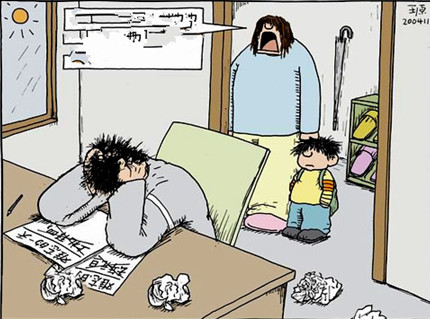
If children study in an unstable state for a long time, they will naturally find it difficult to concentrate, and their learning efficiency will be low, which will affect their grades. "Back to the empty" also has a bad impact on children's personality and psychology. Children are prone to become sensitive and aggressive, and are prone to disputes with others. They are indecisive, selfish or self-centered, etc.
"Looking into the sky" and "facing the wall" are also not good for children's physical and mental health
If you place the desk facing the window, you will not only violate the taboo of "facing the empty space", but also violate another taboo of Feng Shui, "looking at the empty space". The so-called "looking at the empty space" means that when children sit facing the window while studying, the view outside the window is open, and the flow of people and cars can be seen at a glance. At this time, children are easily attracted or disturbed by the sounds or scenes outside the window, resulting in inattention and distraction. In terms of personality, they will become restless, irritable, impractical, and ambitious.
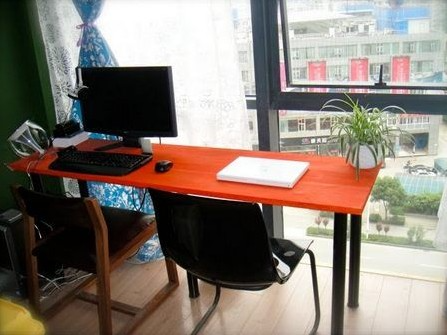
Some families place their desks facing the wall, which is a violation of the "facing the wall" taboo. When a child sits in front of a desk, the distance from the wall is only a few dozen centimeters, and the field of vision is narrow. Although it is not easily disturbed by the foreground (the interference of the empty space behind is still there), it seems that they can concentrate, but in the long run, it is also not good for the development of the child's character.
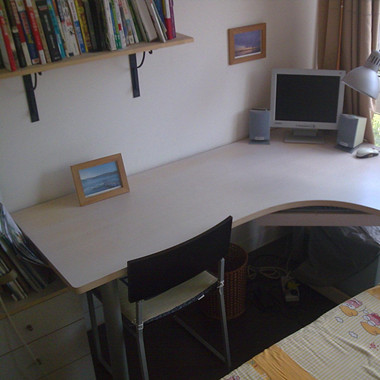
If adults practice "meditation", facing the wall is a good way to sit. Bodhidharma realized the truth by facing the wall in a cave in Shaolin Temple for 9 years. But if children do this, they will become autistic, self-centered, selfish, stubborn, narrow-minded, easily get stuck in a dead end, and have a less open-minded personality.

This arrangement is most beneficial to children
So what is the most ideal way to place a desk? It is to let the child's seat back against the wall or a tall bookcase, that is, the back must be solid, while avoiding the two situations of "looking into the air" and "facing the wall".
You may have learned from previous articles that the best Feng Shui layout for buildings is: there is a mountain behind, a bright hall in front to gather energy, a mountain in the distance to face the mountain, and the left and right Azure Dragon and White Tiger are high and low to support each other. In fact, it is also the same when applied indoors. If there are other tall furniture in the room, it is generally better to put it on the left side of the desk, which means "Azure Dragon is high and White Tiger is low".
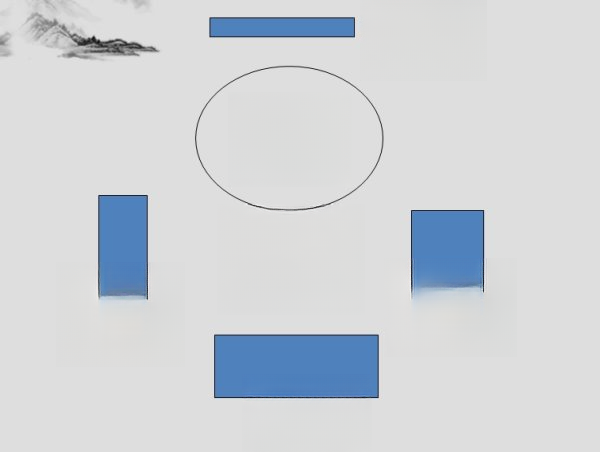
Haoran remembered that when he was doing feng shui for a client, he pointed out that the child's desk was placed in a way that was not in a good position. The client was also impatient, so he followed Haoran's advice and moved the desk back against the wall. Because the room was not very big, it was not very convenient for the child to sit or lie down in this way. But the next morning, the client called Haoran and said that his daughter had told him last night that she felt more focused when studying and felt more at ease and comfortable.
There are many harms of having an empty desk for adults
When placing desks, adults should also avoid facing an empty space. According to Feng Shui theory, sitting with an empty space behind one’s back will not only make one feel uneasy and easily disturbed, but also have the following disadvantages:
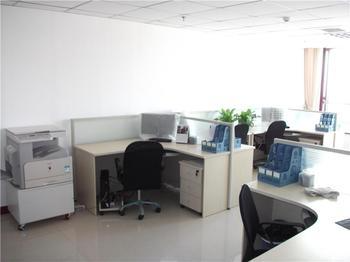
1. Easy to lose power or lack leadership ability;
2. There is no help from noble people at work and lack of promotion opportunities;
3. Job changes are likely to occur;
3. Your opinions are not easily accepted by others, and you are prone to disagreements with others;
4. It is difficult to accumulate wealth;
5. Emotionally, there are many entanglements;
6. The attitude towards money is both stingy and wasteful.
However, due to space constraints, we will put the detailed discussion of adult offenders' "back-to-back" behavior, especially how to avoid and resolve it, in another article. We hope you will pay attention and like it.